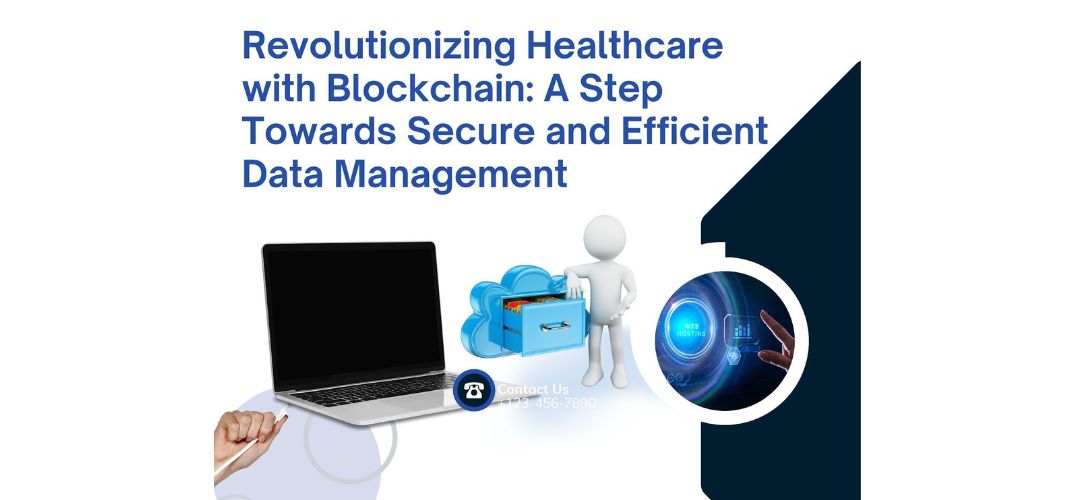In the era of digital transformation, healthcare systems worldwide face growing challenges in managing sensitive patient data while ensuring security, interoperability, and accessibility. Brahmanand Reddy Bhavanam, a technology expert, explores how blockchain can revolutionize distributed healthcare systems. His insights provide a roadmap for integrating this technology to enhance data management, security, and operational efficiency.
A New Era of Healthcare Data Security
Traditional healthcare data management systems are plagued by security vulnerabilities, unauthorized access, and inefficiencies in data sharing. Blockchain’s decentralized nature offers a solution by ensuring data integrity through cryptographic security and immutable record-keeping. By implementing distributed authentication mechanisms, blockchain mitigates risks associated with data breaches and enhances the transparency of healthcare transactions.Additionally, blockchain technology enables patient-controlled access permissions, reducing intermediary dependence
Innovative Blockchain Architecture for Healthcare
Blockchain’s multi-layered architecture plays a crucial role in healthcare integration. A data layer stores encrypted medical records, a network layer facilitates communication between nodes, and an application layer enables user interactions. The security layer incorporates role-based access control (RBAC) and cryptographic techniques to ensure compliance with privacy regulations. This structured approach allows for seamless integration with existing healthcare infrastructure while preserving data integrity.
Enhancing Electronic Health Records (EHR) Management
Blockchain offers a decentralized approach to managing EHRs, eliminating data silos and enabling real-time access for healthcare providers. By utilizing permissioned networks, blockchain ensures that only authorized entities can modify or access patient records. This innovation significantly reduces medical errors, enhances care coordination, and improves overall patient outcomes.
Transforming Clinical Trials and Research
Clinical trials require high levels of data integrity and transparency. Blockchain provides an immutable ledger for recording trial protocols, patient enrollments, and outcomes. This ensures that data remains tamper-proof, reducing the risk of fraud and enhancing regulatory compliance. Automated smart contracts streamline compliance monitoring and facilitate secure data sharing among research institutions.
Improving Pharmaceutical Supply Chain Management
Counterfeit drugs and supply chain inefficiencies pose significant risks to patient safety. Blockchain enables end-to-end tracking of pharmaceutical products from manufacturing to distribution. By leveraging smart contracts, the system automatically verifies product authenticity, ensuring regulatory compliance and reducing instances of counterfeit medications in circulation.
Optimizing Healthcare Billing and Insurance Processing
Blockchain-based smart contracts automate claims processing, reducing administrative burdens and expediting payments. The system verifies insurance eligibility, processes claims, and executes payments with minimal human intervention. This enhances transparency, prevents fraudulent claims, and streamlines revenue cycle management for healthcare providers.
Empowering Patients with Data Control
Patients gain greater control over their health data through blockchain-based consent management. A decentralized ledger records consent decisions and access permissions, ensuring compliance with data protection regulations. Patients can grant or revoke access to their records in real time, while healthcare providers maintain detailed audit trails of data interactions.
Addressing Security and Privacy Concerns
Regulatory compliance in blockchain-based healthcare systems requires a robust security framework. By combining on-chain and off-chain storage mechanisms, healthcare organizations achieve compliance with regulations such as HIPAA and GDPR. Advanced cryptographic techniques, including attribute-based encryption and multi-factor authentication, further enhance data security while preventing unauthorized access.
Performance and Cost Efficiency of Blockchain Adoption
Benchmarking studies highlight blockchain’s advantages over traditional healthcare systems. Blockchain implementations exhibit up to 70% improvement in data synchronization speed, a 40% reduction in data retrieval time, and enhanced system availability. Although initial deployment costs range between $300,000 and $1.5 million, organizations report a 25-30% reduction in operational expenses within two years due to improved efficiency and fraud prevention.
Overcoming Challenges and Paving the Way Forward
Despite its advantages, blockchain faces challenges in scalability and integration with legacy systems. Healthcare networks process only 100-500 transactions per second, necessitating the development of optimized consensus mechanisms. Future advancements include AI-powered smart contracts, edge computing for real-time data processing, and quantum-resistant encryption for long-term security.
In conclusion,Brahmanand Reddy Bhavanam’s analysis underscores blockchain’s transformative potential in healthcare. By enhancing security, interoperability, and efficiency, blockchain addresses longstanding challenges in data management. As research and technological advancements continue, the future of healthcare will witness greater blockchain adoption, leading to improved patient care and operational excellence.



































